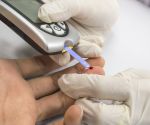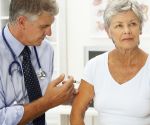Advertisement
The most common signs of an allergic reaction to insulin will appear at the injection site soon after the insulin shot is administered. Symptoms of an allergic reaction include swelling, redness, itching and a burning sensation. In people who have an allergic reaction, the insulin usually does not work as well as it should. Less than 1% of people are allergic to insulin.
If you suspect that you are allergic to your insulin, talk to your doctor. Most likely you’re having a reaction to a preservative in the insulin and not the insulin itself, so trying another brand of insulin may relieve your symptoms. In some cases, you may need to take an oral antihistamine or have a steroid added to your insulin injection.
If you suspect that you are allergic to your insulin, talk to your doctor. Most likely you’re having a reaction to a preservative in the insulin and not the insulin itself, so trying another brand of insulin may relieve your symptoms. In some cases, you may need to take an oral antihistamine or have a steroid added to your insulin injection.
Signs of a local allergic reaction to insulin are:
• dents under the skin at injection sites
• redness at injection sites, either persistent or temporary
• groups of small bumps, similar to hives
• swelling at injection sites
If you think you may be experiencing an allergic reaction to your insulin preparation, talk to your provider.
• dents under the skin at injection sites
• redness at injection sites, either persistent or temporary
• groups of small bumps, similar to hives
• swelling at injection sites
If you think you may be experiencing an allergic reaction to your insulin preparation, talk to your provider.
Continue Learning about Insulin
Important: This content reflects information from various individuals and organizations and may offer alternative or opposing points of view. It should not be used for medical advice, diagnosis or treatment. As always, you should consult with your healthcare provider about your specific health needs.





